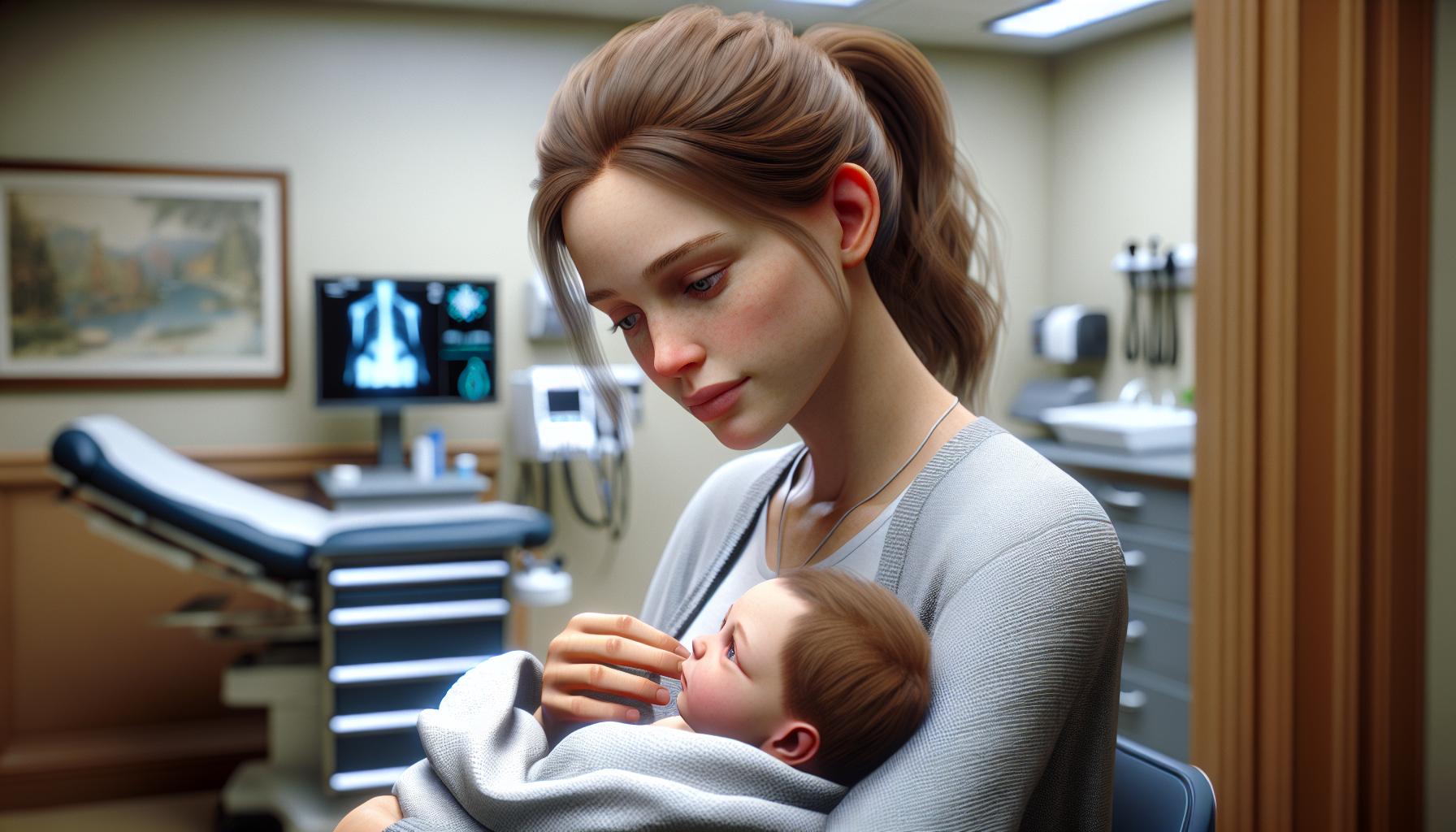As a new parent, the well-being of my newborn is my top priority. It’s both exciting and overwhelming to navigate the world of infant care, especially when unexpected health issues arise. That’s where newborn urgent care comes into play. This specialized field offers quick access to medical help for infants who need immediate attention but aren’t facing life-threatening emergencies.
Understanding when to seek urgent care for my little one can make all the difference. From fevers to respiratory distress, knowing the signs can help me act swiftly and ensure my baby gets the care they need. In this article, I’ll explore the essentials of newborn urgent care, providing insights that every parent should know to keep their precious bundle healthy and safe.
- Urgent Care Definition: Newborn urgent care provides swift medical attention for infants facing non-life-threatening conditions, ensuring prompt assessment and treatment for common health issues.
- Recognizing Symptoms: Parents should be vigilant about symptoms like fever, respiratory distress, dehydration, rashes, vomiting, diarrhea, and lethargy, as these may require urgent care.
- Types of Facilities: Options include pediatric urgent care centers for non-critical conditions and hospitals or emergency rooms for more serious cases, each with distinct features and wait times.
- Treatment Options: Treatment may involve medication, hydration therapy, breathing treatments, wound care, and nutritional guidance tailored to the newborn’s specific needs.
- Parent Preparation: Documenting symptoms, gathering medical history, and bringing identification and comfort items can streamline the urgent care visit and enhance communication with healthcare providers.
- Importance of Vigilance: Quick action and understanding when to seek help can significantly improve health outcomes for newborns.
Newborn Urgent Care
Newborn urgent care addresses the immediate health needs of infants. Quick access to care is crucial, considering the fragility of newborns’ health.
Definition and Importance
Newborn urgent care offers specialized medical attention for infants experiencing non-life-threatening conditions. This care bridges the gap between routine pediatric visits and emergency room treatment. It’s essential because newborns can’t communicate their discomfort, making parental vigilance critical. Accessing urgent care helps identify and manage common issues effectively, ensuring the infant’s well-being without unnecessary exposure to emergency room environments.
Common Situations Requiring Urgent Care
Several scenarios warrant urgent care for newborns:
- Fever: A temperature over 100.4°F indicates a possible infection needing evaluation.
- Respiratory Distress: Symptoms like rapid breathing or wheezing signal potential respiratory issues.
- Dehydration: Signs include fewer wet diapers, lethargy, or persistent crying without tears.
- Rashes: Rapidly spreading or severe skin irritations may indicate allergies or infections requiring assessment.
- Vomiting or Diarrhea: Frequent vomiting or severe diarrhea can lead to dehydration and needs prompt care.
- Lethargy: Unusual sleepiness or difficulty waking can suggest underlying health problems.
Recognizing these symptoms and seeking urgent care enhances the likelihood of positive health outcomes for newborns.
Facilities Providing Newborn Urgent Care


Access to appropriate facilities for newborn urgent care offers reassurance to new parents. Various types of facilities exist to address the unique health needs of infants.
Pediatric Urgent Care Centers
Pediatric urgent care centers specialize in treating non-life-threatening conditions in infants and young children. These centers provide a child-friendly environment staffed by healthcare professionals trained in pediatric care. Services often include treatment for common issues such as mild respiratory infections, rashes, and dehydration. Many centers also maintain extended hours, allowing parents access to urgent care outside standard office hours. It’s vital to verify that the facility has board-certified pediatricians or other qualified professionals on-site to ensure optimal care for newborns.
Hospitals and Emergency Rooms
Hospitals and emergency rooms (ERs) offer comprehensive healthcare services, including urgent care for newborns facing severe health issues. While ERs handle critical emergencies, they also accommodate infants with non-life-threatening conditions that require immediate attention. New parents should be prepared for longer wait times in ERs compared to pediatric urgent care centers. Many hospitals also provide specialized pediatric emergency departments equipped to care for infants and children. Familiarizing oneself with nearby hospitals’ pediatric services can aid in quicker decision-making during urgent situations.
Services Offered in Newborn Urgent Care


Newborn urgent care provides specialized medical services tailored for infants with non-life-threatening conditions. The aim is to ensure swift assessment, accurate diagnosis, and appropriate treatment to address immediate health concerns.
Assessment and Diagnosis
Assessment begins with a thorough evaluation by a pediatrician, where vital signs, weight, and overall health are monitored. Doctors conduct detailed physical examinations to identify symptoms, such as fevers, respiratory issues, and rashes. Diagnostic tests, including blood tests and imaging studies, may be performed if needed. This comprehensive approach allows for precise diagnosis and guides the subsequent treatment planning.
Treatment Options
Treatment options in newborn urgent care vary based on diagnosed conditions and may include:
- Medication Administration: Prescription of appropriate medications for conditions like infections or allergies.
- Hydration Therapy: IV fluids provided for dehydration cases due to vomiting or diarrhea.
- Breathing Treatments: Nebulizers or inhalers used to alleviate respiratory distress.
- Wound Care: Treatment of minor cuts or rashes with appropriate antiseptics and dressings.
- Nutritional Guidance: Recommendations for feeding practices to address issues like poor feeding or weight gain concerns.
Each treatment regimen is customized, taking into account the newborn’s age, weight, and medical history. The goal is to ensure effective, compassionate care while minimizing discomfort for the infant.
Tips for Parents Seeking Newborn Urgent Care


Considering the unique challenges of caring for newborns, recognizing symptoms and preparing for medical visits can significantly impact health outcomes. Awareness and readiness simplify the urgent care process.
Recognizing Symptoms
Identifying symptoms that necessitate urgent care is critical. Common indicators include:
- Fever: A temperature over 100.4°F (38°C) can be a sign of infection. Monitor and seek care for any significant changes.
- Respiratory Distress: Signs include rapid breathing, wheezing, or difficulty breathing. Act immediately if these symptoms occur.
- Dehydration: Watch for fewer wet diapers, lethargy, or a dry mouth. Hydration is crucial for newborn well-being.
- Rashes: Skin irritations or persistent rashes may require evaluation to rule out infections or allergic reactions.
- Vomiting or Diarrhea: Frequent vomiting or diarrhea may lead to dehydration and warrants urgent care.
- Lethargy: Unusual tiredness or difficulty waking may indicate serious health issues. Observe the newborn’s activity level closely.
Preparing for the Visit
Preparation aids in effective communication with healthcare providers. Consider the following steps:
- Document Symptoms: Write down observed symptoms, including onset, frequency, and duration. Accurate records help healthcare professionals make informed decisions.
- Gather Medical History: Collect relevant medical history, including birth details, any previous health issues, and current medications or supplements. This information supports comprehensive care.
- Provide Identification: Bring insurance cards and identification to streamline the check-in process.
- Plan for Comfort: Bring familiar items, such as a favorite blanket or toy, to help soothe the newborn during the visit. Familiar items can reduce stress for infants.
- Arrive Early: Arriving a few minutes early allows for a smooth check-in and the chance to ask any last-minute questions.
Organizing these details enhances the efficiency of the visit and ensures that the newborn receives the necessary care without unnecessary delays.
Navigating the world of newborn care can feel overwhelming at times. Knowing when to seek urgent care for your little one is crucial for their health and well-being. By recognizing the signs that warrant immediate attention and understanding the resources available, you can ensure your baby receives the right care when they need it most.
It’s empowering to be prepared and informed. Familiarizing yourself with local pediatric urgent care centers and hospitals can make a significant difference in urgent situations. Remember that your vigilance and prompt action can lead to better health outcomes for your newborn. Trust your instincts and prioritize your child’s health.

